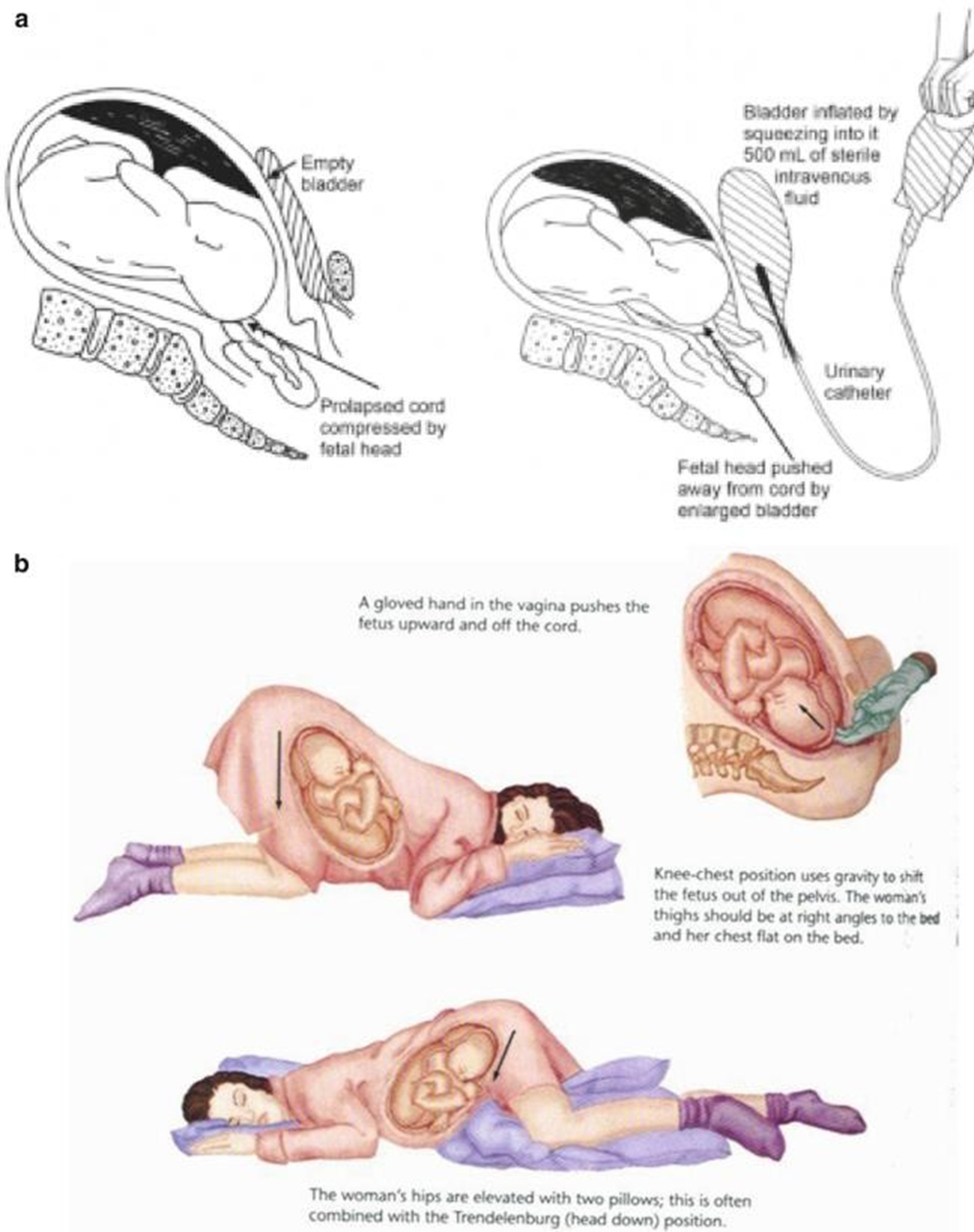A nurse is caring for a client who is in labor and notes that the umbilical cord is prolapsed. Which of the following actions should the nurse take?
Evaluate uterine tone.
Loosely wrap the cord with petroleum gauze.
Place the client in Trendelenburg position.
Apply fundal pressure.
The Correct Answer is C
A. While evaluating uterine tone is part of routine labor monitoring, it does not address the urgent need to relieve pressure on the prolapsed umbilical cord.
B. Keeping the cord moist is less of a priority than immediate measures to relieve pressure on the cord.
C. For a prolapsed umbilical cord, the immediate goal is to relieve pressure on the cord to maintain fetal oxygenation. Placing the client in the Trendelenburg position or a knee-to-chest position can help reduce the pressure on the cord by using gravity to shift the fetal presenting part toward the diaphragm.
D. Applying fundal pressure is contraindicated in the case of umbilical cord prolapse as it can increase pressure on the cord and exacerbate fetal distress.

Nursing Test Bank
Naxlex Comprehensive Predictor Exams
Related Questions
Correct Answer is B
Explanation
A. This advice may lead to inadequate emptying of the breasts and imbalance in milk production, potentially affecting milk supply and infant feeding.
B. Encouraging feeding on demand promotes effective breastfeeding by allowing the infant to feed when hungry, which helps establish and maintain milk supply. This approach supports infant cues and promotes successful breastfeeding.
C. Strict time limits on feeding can interfere with effective breastfeeding and hinder milk transfer, potentially leading to inadequate nutrition for the infant.
D. Water supplementation is unnecessary for breastfed infants and can interfere with breastfeeding by reducing infant appetite for breast milk.
Correct Answer is B
Explanation
A. While a cooling blanket may be indicated to reduce fever associated with a thyroid storm, the priority lies in monitoring the cardiac rhythm for potential life-threatening complications such as tachycardia or arrhythmias.
B. Thyroid storm can precipitate severe cardiac complications, making continuous monitoring of the client's cardiac rhythm imperative to detect any abnormalities promptly.
C. Administering IV fluids may be necessary to address dehydration, but it is not the priority over monitoring the cardiac rhythm.
D. While monitoring blood glucose levels is important, it is not the immediate priority in managing a thyroid storm.
Whether you are a student looking to ace your exams or a practicing nurse seeking to enhance your expertise , our nursing education contents will empower you with the confidence and competence to make a difference in the lives of patients and become a respected leader in the healthcare field.
Visit Naxlex, invest in your future and unlock endless possibilities with our unparalleled nursing education contents today
Report Wrong Answer on the Current Question
Do you disagree with the answer? If yes, what is your expected answer? Explain.
Kindly be descriptive with the issue you are facing.
